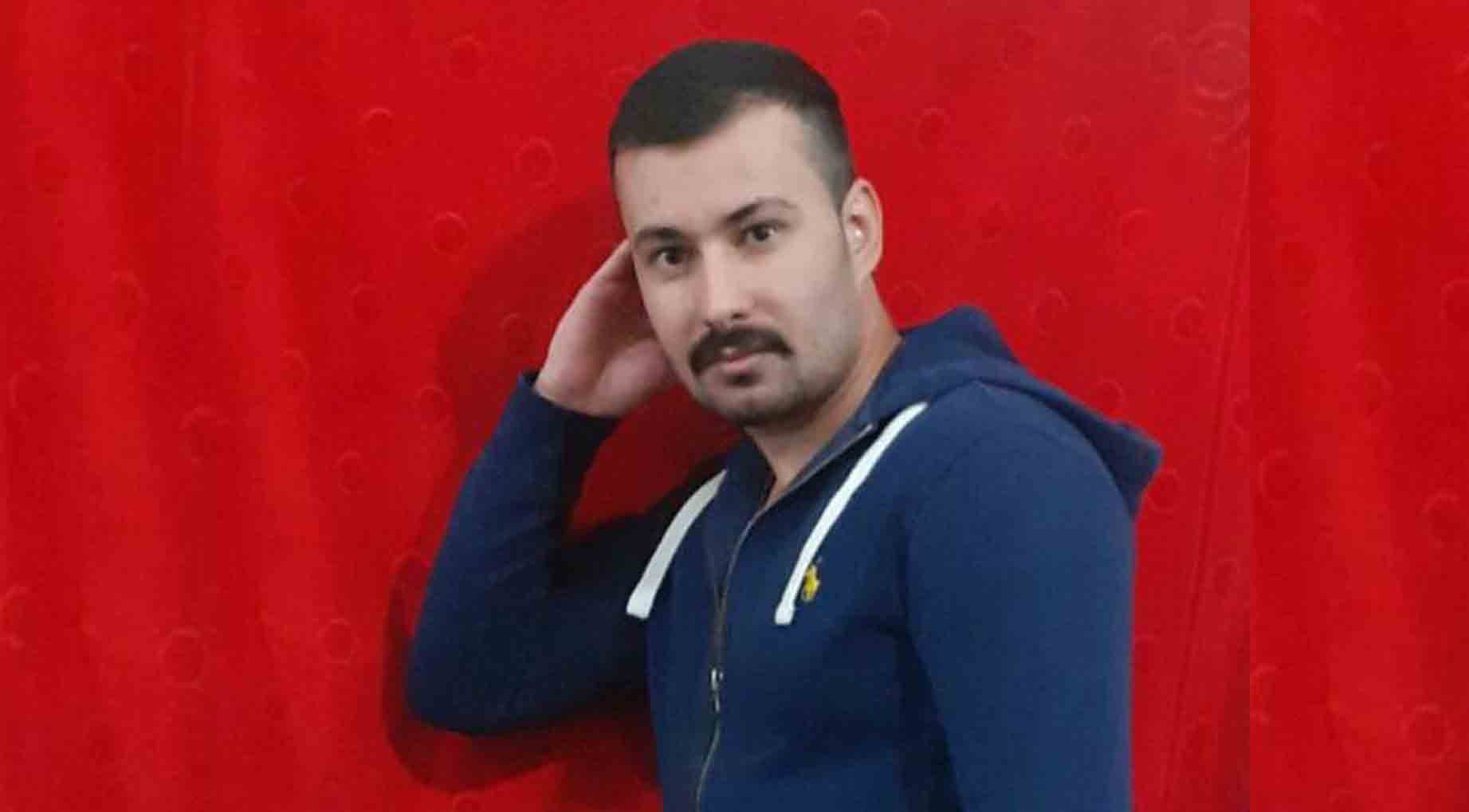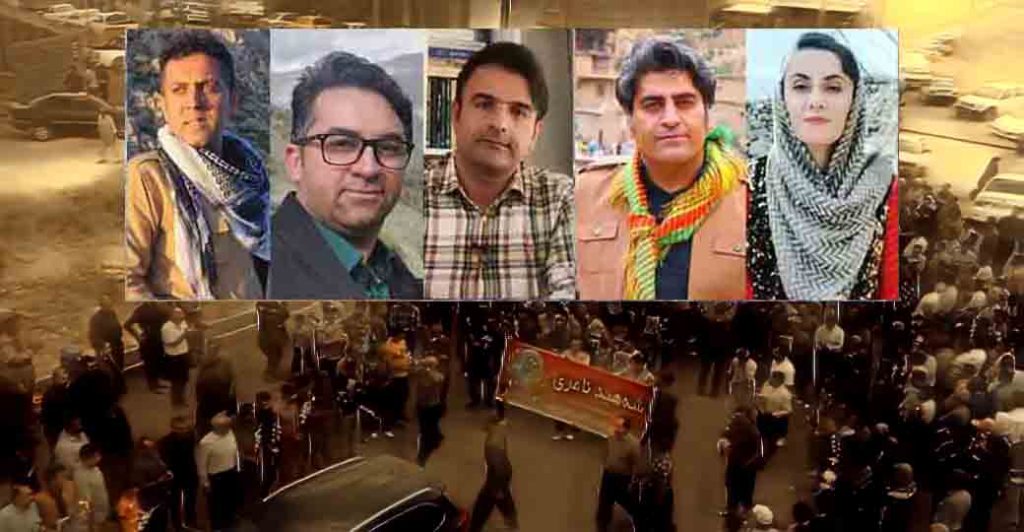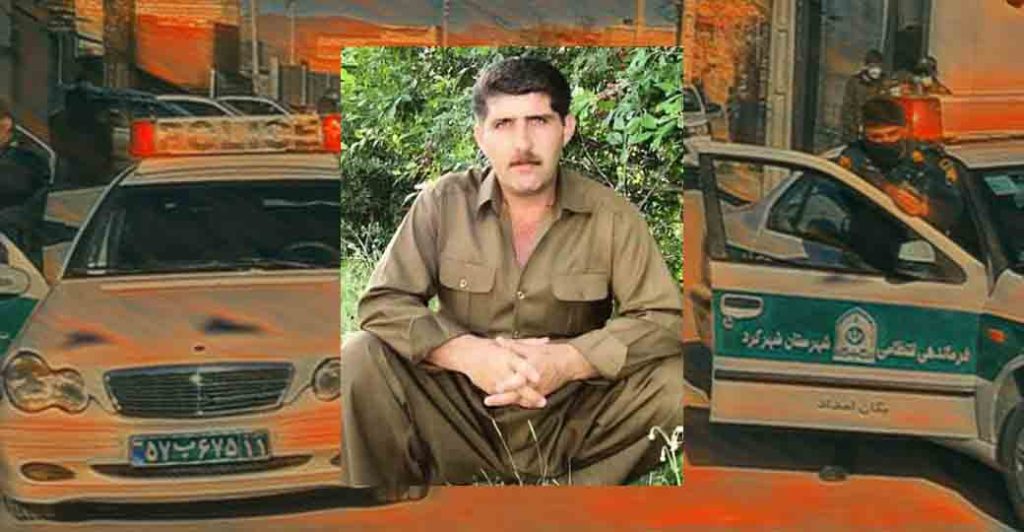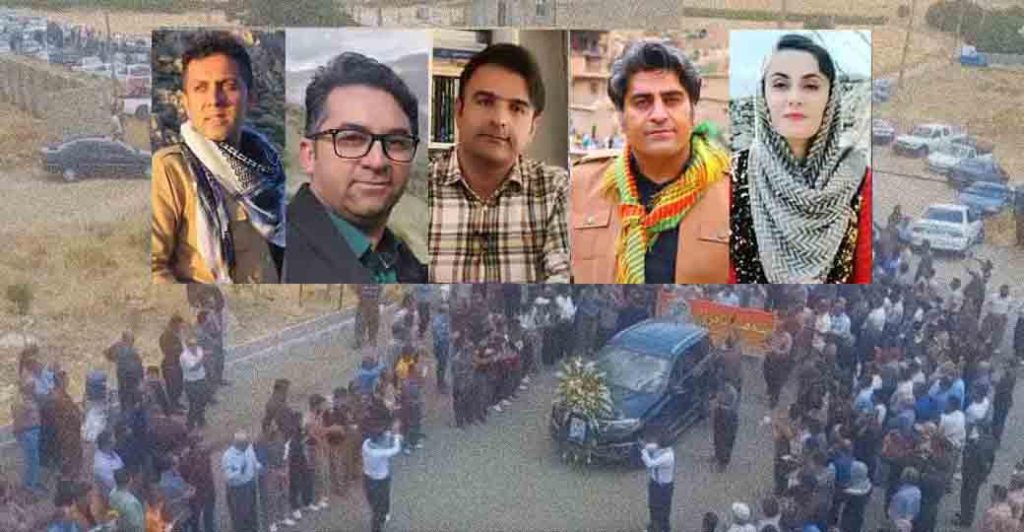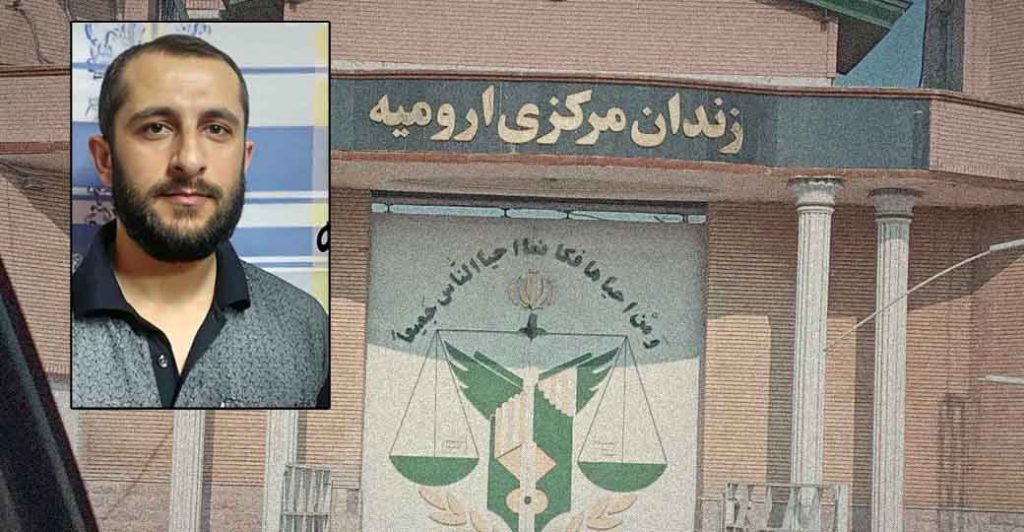Kurdish prisoner of conscience Khosrow Besharat was executed this morning in Ghezel Hesar Prison in Karaj, Alborz Province, after 14 years in prison, the Kurdistan Human Rights Network (KHRN) has learned.
Besharat was transferred to solitary confinement on 1 May at the same time as the execution of his cousin and co-defendant, Anvar Khezri, and was held in a solitary cell until his execution.
Five of Besharat’s co-defendants, Ghassem Abasteh, Ayoub Karimi, Davoud Abdollahi, Farhad Salimi, and Anvar Khezri, have been executed in recent months.
On 5 May, Besharat’s family, summoned from Mahabad, West Azerbaijan Province, had a brief 20-minute visit with him in Ghezel Hesar Prison in Karaj.
Following the visit, the KHRN published a report warning that the prisoner of conscience was at imminent risk of execution.
Background
Besharat was arrested in February 2010 by security forces in Mahabad, West Azerbaijan Province, and taken to the Ministry of Intelligence detention centre in Orumiyeh, West Azerbaijan Province.
In a letter he wrote in 2021, he recounted his one-month detention and torture at the ministry’s detention facility: “It was in January 2010 when I was arrested by the intelligence forces in Mahabad and immediately transferred to the Ministry of Intelligence in Orumiyeh. They subjected me to various forms of torture for a full month in solitary confinement. Often, from midnight until morning, terrifying noises, cries, and screams of someone being tortured filled the air, instilling fear and trembling throughout my body. I could not sleep until morning due to the fear, and this greatly distressed and mentally tortured me. They often tied my hands tightly from behind, causing me to moan in pain. Many times, they hung me from the ceiling for hours with handcuffs, and at other times, they restrained me on a bed, strongly hitting the soles of my feet with electric cables, almost causing my brain to come out of my mouth, and my eyes to detach from their sockets, while my heart felt like it was about to burst.”
In a subsequent part of the letter, he continued: “These tortures continued for three weeks, after which they threatened to arrest my family members. During these tortures and threats, the interrogator wrote down the charges against me, and in that state, I was forced to sign and leave my fingerprints on the same paper. At that time, it felt like I did not exist in this world, and I did not know what I was signing.”
After the end of his interrogation period, the Besharat spent some time in Mahabad, Orumiyeh, and Evin Prison’s Ward 350 before being transferred to Rajai Shahr Prison in Karaj.
In March 2016, Besharat and his six co-defendants were tried in Branch 28 of the Islamic Revolutionary Court in Tehran, presided over by Judge Moghiseh, on charges such as “acting against national security”, “propaganda against the state”, “membership in Salafi groups”, and “spreading corruption on earth”.
On 25 May 2016, they were officially informed of the death sentence. After the lawyer objected to the issued verdict, the case was referred to Branch 41 of the Supreme Court, presided over by judge Razini, which overturned the verdict in early 2017 and referred the case to Branch 15 of the Islamic Revolutionary Court in Tehran.
After the referral of the case to Branch 15 of the Islamic Revolutionary Court in Tehran, presided over by Judge Salavati, in June 2018, the seven prisoners were again sentenced to death on charges of “spreading corruption on earth.”
Following the lawyer’s objection to the issued verdict, the case was referred to Branch 41 of the Supreme Court, and in February 2020, the verdict was upheld with the pressure from the Ministry of Intelligence.
On 3 February 2020, the prisoners’ lawyer, Mahmoud Alizadeh Tabatabaei, was officially informed of the final verdict.
Additionally, on 30 June 2018, Besharat was also sentenced to 10 years in prison in a separate case in Branch 12 of the Orumiyeh Appeals Court for “involvement in murder”.
Khadijeh Azar-Pouya, Besharat’s mother, in a letter addressed to Javaid Rehman, the UN Special Rapporteur on the Situation of Human Rights in the Islamic Republic of Iran, in February 2020, asked him to take the necessary legal steps to halt and revoke her son’s execution order.
In part of the letter, she described her son as a victim of conspiracy and fabrication orchestrated by the Ministry of Intelligence in Mahabad and Orumiyeh: “Mr. Javaid Rehman, my son was only 23 years old when he was arrested in 2010, and now he is 34 years old. He has spent the prime of his youth in detention and prison without having committed any crime. I am completely broken and old, and the words laughter and joy no longer have any meaning for me. In 2017, when my son’s death sentence was overturned by the Branch 41 of the Supreme Court, I thought the wait was finally over, and there was hope for my son’s return. But it did not take long for the sweetness of my son’s acquittal and even full release from all charges by Branch Two of the Mahabad Prosecutor’s Office to turn sour with the reissuance of his death sentence by Branch 15 of the [Islamic] Revolutionary Court chaired by Abolghasem Salavati. What is even more painful and frustrating is that after more than ten years of waiting for my son’s acquittal and release, which was solely due to the lack of any evidence or basis to prove his guilt, unfortunately Branch 41 of the Supreme Court upheld the death sentence issued by Branch 15, and we learned of the sentence through his lawyer. How is it possible that Branch 41 of the Supreme Court can overturn the first death sentence issued by Branch 28 of the [Islamic] Revolutionary Court on the basis of insufficient evidence and confessions, but the second time, without any change in the case, confirm the sentence? Is it anything other than the fact that the judiciary of the Islamic Republic, under the influence and orders of the Ministry of Intelligence, simply issues and confirms verdicts?”
In August 2023, the seven prisoners were transferred to Ghezel Hesar Prison after the closure and evacuation of Rajai Shahr Prison in Karaj.

